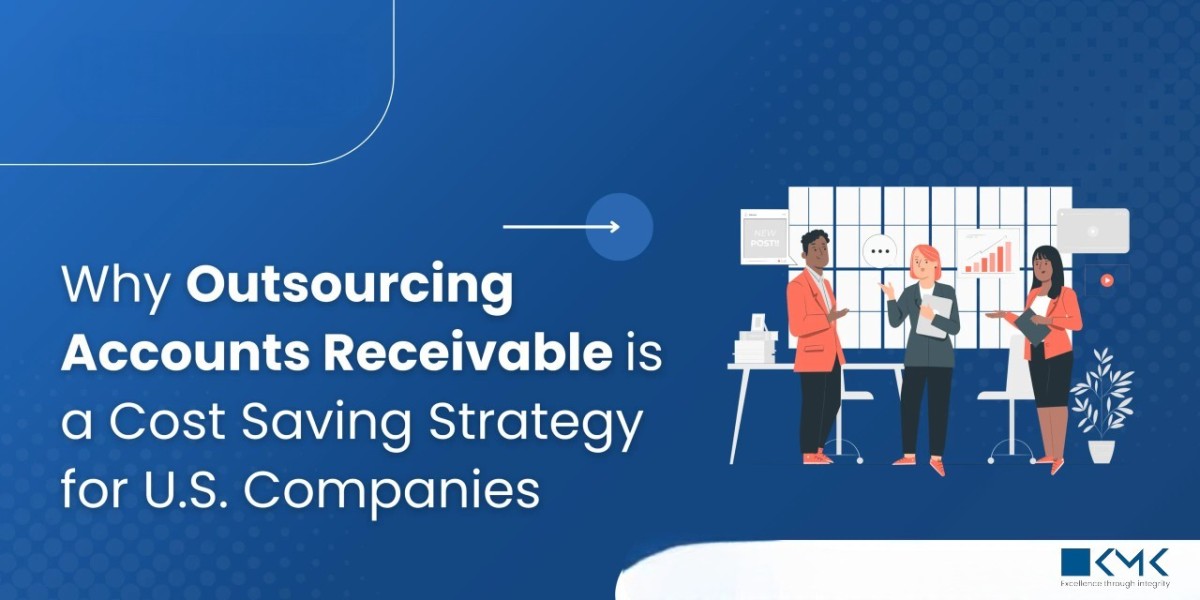In today’s unpredictable economy, US businesses face one recurring financial headache — collection delays. When invoices pile up and clients take weeks or months to pay, cash flow suffers. Add human errors, inconsistent follow-ups, or billing discrepancies, and it’s clear why many firms are turning to experts who can handle this challenge efficiently: outsource accounts receivable services.
But what exactly makes outsourced AR firms so effective in resolving collection delays and minimizing errors? Let’s break it down.
The Persistent Problem of Collection Delays
Every B2B company has faced late payments — some clients pay habitually late, while others have genuine internal issues. Either way, the impact on your cash flow and financial stability is significant.
Here’s what typically causes AR delays and errors in US firms:
Manual data entry leading to invoice inaccuracies
Disconnected billing and accounting systems
Inefficient follow-up strategies
Lack of trained AR professionals
Insufficient visibility into receivable cycles
For small and mid-sized businesses, these problems compound quickly. Without the right technology or expertise, your team ends up chasing payments instead of focusing on strategic finance work.
Why Outsourcing AR Is a Smart Move
When you outsource accounts receivable services, you hand over time-consuming, error-prone processes to professionals who specialize in collections, reconciliations, and reporting. These experts combine technology with proven processes to make sure every invoice is tracked, followed up, and collected efficiently.
Here’s why outsourcing AR is gaining traction among US businesses:
Faster cash recovery through automated reminders and proactive follow-ups.
Error-free invoicing supported by standardized documentation.
Access to skilled professionals without the overhead of full-time hiring.
Advanced reporting and analytics for better forecasting.
Scalable solutions that grow with your business.
Essentially, outsourcing turns AR from a reactive function into a proactive cash management system.
How Outsourced AR Firms Tackle Collection Delays
Outsourced AR firms don’t just chase invoices — they build a systematic, data-driven process that accelerates payment cycles. Here’s how they do it:
1. Automated Invoicing and Payment Tracking
Manual data entry often causes delays and discrepancies. Outsourcing firms use automation tools like cloud accounting systems and AR dashboards that instantly record, send, and monitor invoices.
This ensures every client gets accurate, timely bills — and every payment is tracked until received.
2. Structured Follow-Up Processes
Instead of random or infrequent reminders, outsourced AR providers establish a structured follow-up cadence.
For example:
Friendly reminder before due date
Follow-up email immediately after due date
Escalation to the next level after a specific period
These timely and polite reminders improve payment consistency while maintaining positive client relationships.
3. Root-Cause Analysis of Delays
Top-tier AR outsourcing firms analyze the root cause of payment issues. Is it a documentation error? Miscommunication? Or a client-side delay?
By identifying patterns, they help businesses fix systemic issues — ensuring future invoices are processed faster.
4. Dispute Resolution and Documentation
Billing disputes are a major source of delay. Outsourced teams maintain organized documentation for every invoice, making it easy to resolve disagreements quickly. They also act as a neutral intermediary, improving transparency between you and your clients.
How They Eliminate Human Errors
Even minor errors — like an incorrect invoice number or tax miscalculation — can cause payment delays. Outsourced AR firms leverage technology and trained specialists to eliminate these risks.
Here’s how:
Double-check verification: Every invoice passes through automated validation checks.
Integrated data systems: Accounting, billing, and CRM tools are synced to prevent data mismatches.
AI-powered error detection: Machine learning tools flag anomalies in billing or reconciliation before they reach the client.
Periodic audits: Regular internal audits ensure consistent accuracy and compliance.
By combining automation and oversight, these firms significantly reduce invoice disputes, data entry mistakes, and reconciliation errors.
The Role of Technology in Outsourced AR
Modern AR outsourcing firms rely heavily on technology to maintain speed and accuracy. They use tools like:
Cloud-based accounting software (Xero, QuickBooks, NetSuite)
Automated reconciliation systems
AI-driven payment prediction tools
Real-time analytics dashboards
Secure client communication platforms
This digital-first model allows real-time visibility into collections and provides valuable insights for decision-making.
The Financial Benefits for US Businesses
The impact of outsourcing AR goes beyond faster payments — it strengthens your company’s overall financial health. Firms that outsource accounts receivable services typically see:
✅ 20–40% reduction in DSO (Days Sales Outstanding)
✅ Fewer write-offs due to error-free billing
✅ Improved working capital and liquidity
✅ Better client satisfaction due to timely communication
In other words, outsourcing doesn’t just save time — it pays for itself through measurable performance improvements.
Real-World Example: The Mid-Sized B2B Advantage
Consider a US-based logistics firm struggling with late payments from corporate clients. With a small in-house accounting team, invoices often went out late, and disputes piled up. After partnering with an outsourced AR provider:
Invoices were automated.
Follow-ups became consistent.
DSO dropped from 68 days to 42 days.
Within six months, cash flow stabilized, and the finance team could focus on business forecasting instead of daily collection stress.
This example highlights the transformative impact AR outsourcing can have — especially for B2B firms with high transaction volumes.
Choosing the Right Outsourcing Partner
If you’re considering outsourcing, not every firm will fit your business. Look for these key factors before choosing a partner:
Experience with US accounting standards and B2B clients
Strong data security and compliance framework
Transparent performance metrics (like DSO tracking)
Integration with your accounting tools
Flexible pricing and scalability options
Your goal should be to find a partner that acts as a seamless extension of your finance team — not just a third-party vendor.
Final Thoughts
In an era where efficiency defines competitiveness, collection delays and AR errors are problems no business can afford to ignore. By choosing to outsource accounts receivable services, US companies can resolve payment bottlenecks, eliminate manual errors, and improve cash flow without expanding internal teams.
Outsourcing isn’t just about cost savings — it’s about building a smoother, smarter, and more predictable financial operation. For B2B firms striving to stay agile and financially healthy, it might just be the most strategic move in 2025.






